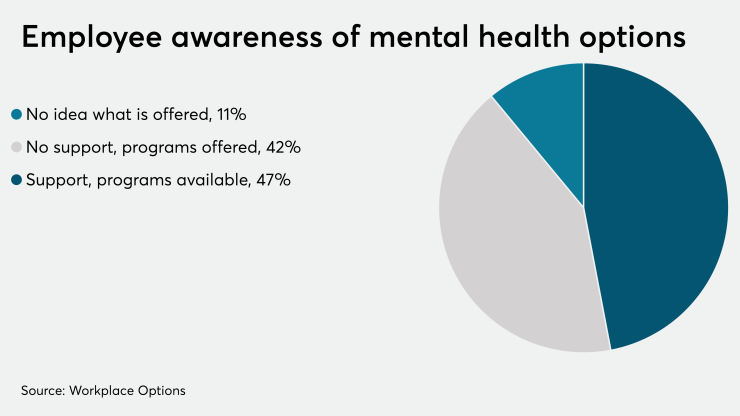LAS VEGAS — Former Rep. Patrick Kennedy suffers from depression, what he considers to be “the most chronic of chronic illnesses.” Struggling with depression is one of the reasons why he advocates for healthcare reform — an issue which needs to be addressed by employers.
“We need to see the whole system change in quality and access to care, and how these programs are reimbursed,” Kennedy said during a panel at the HLTH conference this week. “If employers aren’t bold enough to change the workplace, then nothing will change.”
Kennedy, a Rhode Island Democrat, was joined by Martha Temple, CEO of Optum Behavioral Health, a healthcare benefits provider, who said that the company found in a survey that 87% of employers believe mental healthcare access is an issue.
See also:
“Lots of great companies out there want to make sure employees have access to these services, but many employees don’t know how to navigate the healthcare system,” Temple said.
Optum Behavioral Health aims to make it easier for employees to receive mental healthcare access, Temple said. Optum, and other benefit providers, are accomplishing this through telemedicine and wellness apps, she said. Kennedy also supports the use of these platforms for tackling mental health.
“When I was growing up, when you were going to therapy, you had to schedule an appointment and wait two weeks to see the therapist,” Kennedy said. “When does mental health wait? [Care] needs to be in real-time, and tech is a big game changer for this movement.”
Garen Staglin, chairman and co-founder of the mental health nonprofit One Mind, said that while technology is helping make mental healthcare services more accessible, employers need to do their part to address issues in the office.
“For many people, the HR department is not the place they go when they’re having a problem. Often it’s peer support,” Staglin said. “Training [HR] to provide front-line support is a movement that’s becoming more evident. It’s teaching them how to make the conversation more productive for the [employee]. That’s going to deliver results.”
See also:
Michael Thompson, CEO of the National Alliance of Healthcare Purchaser Coalitions and the panel’s moderator, said only about 3% of employees engage with their EAP. He agreed with the panelists that it’s up to employers to get the workforce to engage with these benefits, and demand better care from providers.
“I personally think employers are leading the revolution, but we have to collaborate to revolutionize the system of mental healthcare,” Thompson said. “Let’s get on the bandwagon to address mental health.”
As a former politician, Kennedy encouraged employers to voice their concerns over mental healthcare reform to Washington — especially since legislators are debating healthcare legislation.
“We need to align the funding and provide access to better care,” Kennedy said. “If you don’t have political will, then none of this is possible.”






